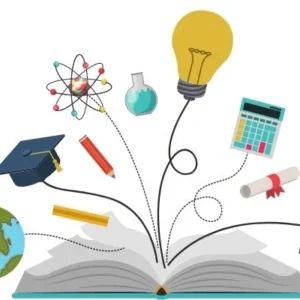Artificial Intelligence (AI), when developed with the lived experiences of persons with disabilities at its core, has the power to transform accessibility into true empowerment. Tools such as conversational screen readers, adaptive dashboards, and real-time captioning are not just removing barriers but creating opportunities for learning, leadership, and full participation in society. By centering inclusion in design, AI can help turn access into agency—enabling individuals to shape their own futures rather than being limited by their environments.
For entrepreneur and technologist Surashree Rahane, inclusion begins with leadership. Born with physical disabilities including club foot and polymelia, she grew up seeing disability not as a limitation but as a different way of engaging with the world. As the founder and CEO of Yearbook Canvas, a platform that creates digital yearbooks for academic institutions, Rahane observed how systemic barriers—such as inaccessible infrastructure, biased funding systems, and rigid education models—continue to restrict equal opportunity. Working with Newton School of Technology near New Delhi, she now focuses on designing inclusive education systems supported by AI tools that adapt to each student’s pace and needs. However, she cautions that if not designed thoughtfully, AI could simply replicate existing social biases in new forms.
AI’s potential as “the great equalizer” is evident across multiple innovations, from voice-to-speech tools for those with speech impairments to gesture-controlled wheelchairs. Prateek Madhav, CEO of AssisTech Foundation (ATF), emphasizes that while many fear AI will replace jobs, for persons with disabilities, it is instead creating them by opening up new employment and entrepreneurial possibilities. Similarly, Ketan Kothari, a consultant at Xavier’s Resource Centre for the Visually Challenged in Mumbai, shares how AI tools have enabled his full independence at work—allowing him to format documents, join meetings with live captions, and access visual content through descriptive apps. For him, AI has transformed imagination into functionality.
Reflecting on the global significance of this movement, Tshering Dema from the UN Development Coordination Office notes that inclusion goes beyond national boundaries or physical accessibility. It is about changing mindsets and co-designing systems that reflect diversity. As showcased through initiatives like Purple Fest, which highlights the achievements of entrepreneurs with disabilities, this growing momentum represents not just an Indian or regional story, but a global transition. The future of work, Dema emphasizes, must be built not just for people with disabilities but with them—ensuring AI becomes a tool for equality, empowerment, and shared progress.







